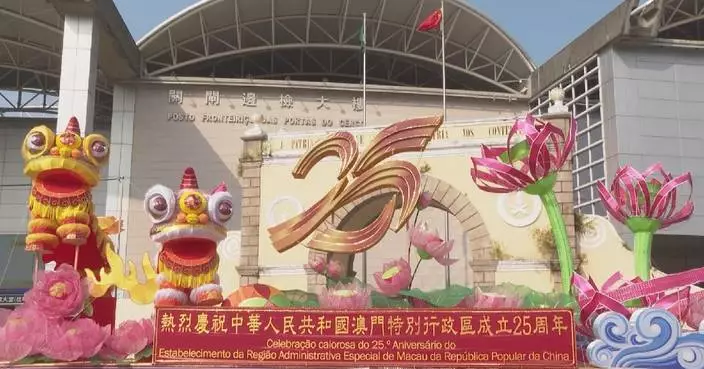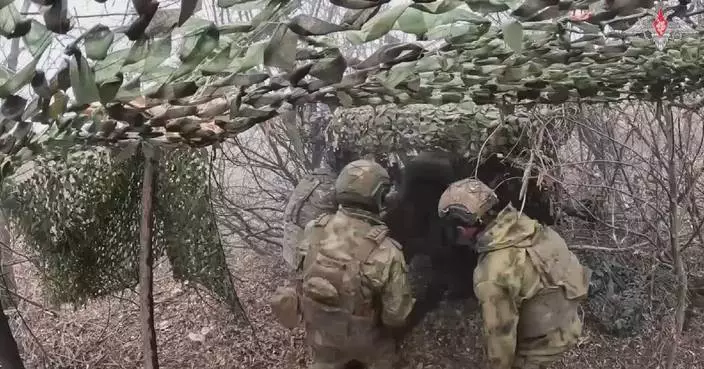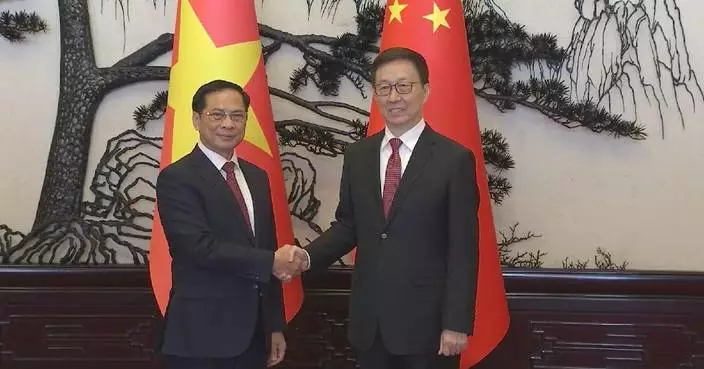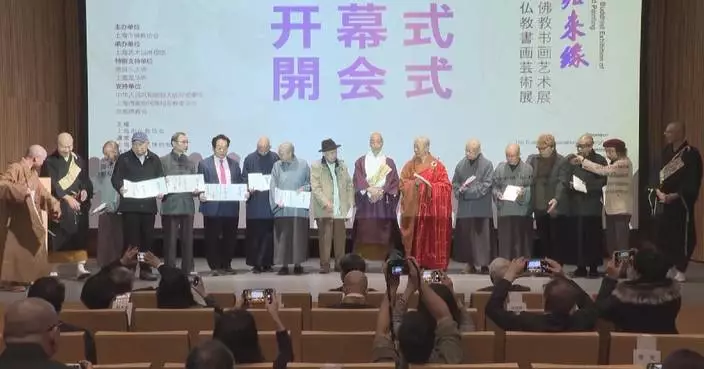Northwest China's Gansu Province has transferred forty Przewalski's horses from one nature reserve to another to avert inbreeding fertility as the last 15 reached the destination on Saturday.
The animals were transferred in batches from the Anxi Extreme-arid Desert National Nature Reserve to the Dunhuang West Lake National Nature Reserve, bringing the population of Przewalski's horses there from 126 to 166.
Before the transfer, fences were set up at the Anxi nature reserve to adapt the horses to a captive environment in advance so as to ease their stress response in transport vehicles. Meanwhile, the horses underwent parasite expulsion in batches.
The Przewalski's horses in the Anxi nature reserve originate from Britain, while those in the Dunhuang nature reserve are from Germany. They are likely to have inbreeding problems in natural conditions without artificial intervention.
The transfer of the horses will help the species with genetic improvement to enhance their capability of living in the wild.
"We aim to increase the population of the species, change their genes and strengthen their resistance for living in the wild to enhance their survival ability," said Sun Weigang, director of the administration and conservation center of the Dunhuang West Lake National Nature Reserve. The last 15 Przewalski's horses will live in a semi-captive environment at the Dunhuang nature reserve to adapt themselves to local natural conditions for months before being released to the wild next year at a proper time.
Przewalski's horses, native to China and Mongolia and currently endangered in the wild, are China's first-class protected animals that retain original equine genes. They were once extinct in the wild in the mid-20th century due to excessive hunting and environmental factors.
In 1985, China launched a campaign to revive wild Przewalski's horses by introducing them from other countries and establishing breeding bases in Xinjiang and Gansu.
Last September, the Dunhuang nature reserve released 40 Przewalski's horses in two wetlands 30 kilometer away. So far, 4 groups of 30 Przewalski's horses have been watched settling and breeding in the two wetlands.
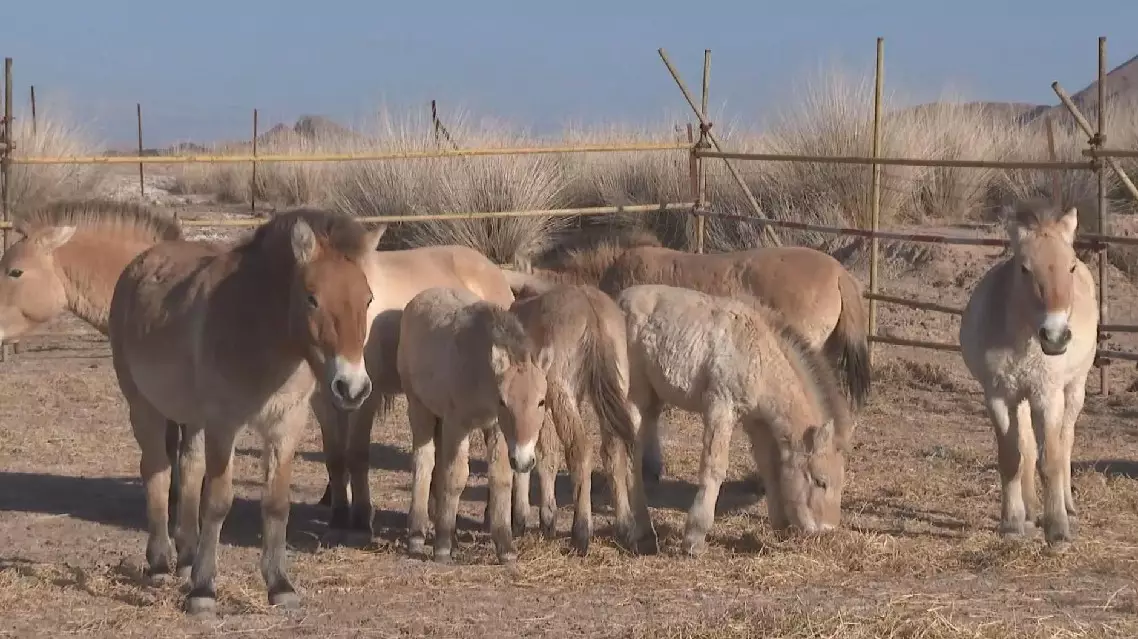
Gansu transfers Przewalski's horses to avert inbreeding fertility
China on Wednesday called on all parties concerned to take practical actions to jointly advance a comprehensive political process led and owned by the Yemeni people so as to seek a political solution to the Yemen issue.
The UN Security Council held a meeting on the situation in Yemen at the UN headquarters in New York on Wednesday to promote unified action to end the Yemen conflict amid escalating regional tensions and growing humanitarian crisis.
Speaking at the meeting, China's deputy permanent representative to the United Nations Geng Shuang said that Israel and the Houthi group have been attacking each other, with Israel recently saying it was considering launching a new large-scale attack on Yemen, which is deeply worrying.
Geng also noted the rapid change in the situation in Syria, which brought new instability to the entire Middle East region, including Yemen and the Red Sea.
China once again calls on the Houthi group to stop attacking merchant ships of various countries in the Red Sea and maintain the safety of waterways. China also calls on all parties concerned to remain calm and restrained to prevent the escalation of tensions, Geng said.
"I would like to once again call on all parties concerned to exercise restraint and refrain from actions that may escalate the situation. I stress that Yemen's sovereignty, security and territorial integrity should be respected. I reiterate that the Yemen issue must ultimately be resolved politically. The current stagnation in the peace process is not in the long-term and fundamental interests of the Yemeni people. All parties should demonstrate political will, take practical actions, gradually build mutual trust, create conditions for restarting dialogue, and jointly advance a comprehensive political process led and owned by the Yemeni people," he said.
Other UN officials also noted that practical measures, including releasing hostages and transferring emergency relief fund, should be taken to prevent tension escalation.
Also at the meeting, Hans Grundberg, special envoy of the Secretary-General for Yemen, reported via video link that although three hostages arbitrarily detained in Yemen six months ago have been released, dozens are still not free, with some detainees having been held for up to a decade, and they should be released immediately and unconditionally.
Tom Fletcher, under-secretary-general for Humanitarian Affairs and Emergency Relief Coordinator, Office for the Coordination of Humanitarian Affairs (OCHA), said internal conflicts still hound Yemen, and the country faces escalating regional tensions, a deteriorating economy and threats to the safety of humanitarian workers of UN and other organizations.
Fletcher also noted an estimated 2.5 billion U.S. dollars are needed to reach 10.5 million people across Yemen.
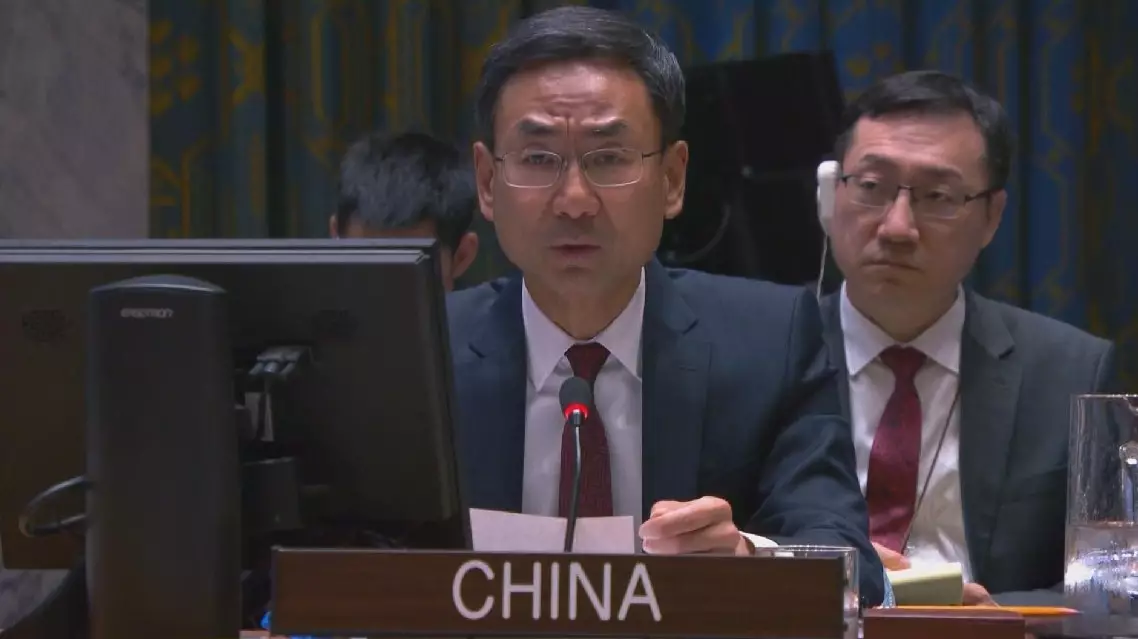
China calls for concerted efforts to seek political solution to Yemen issue




